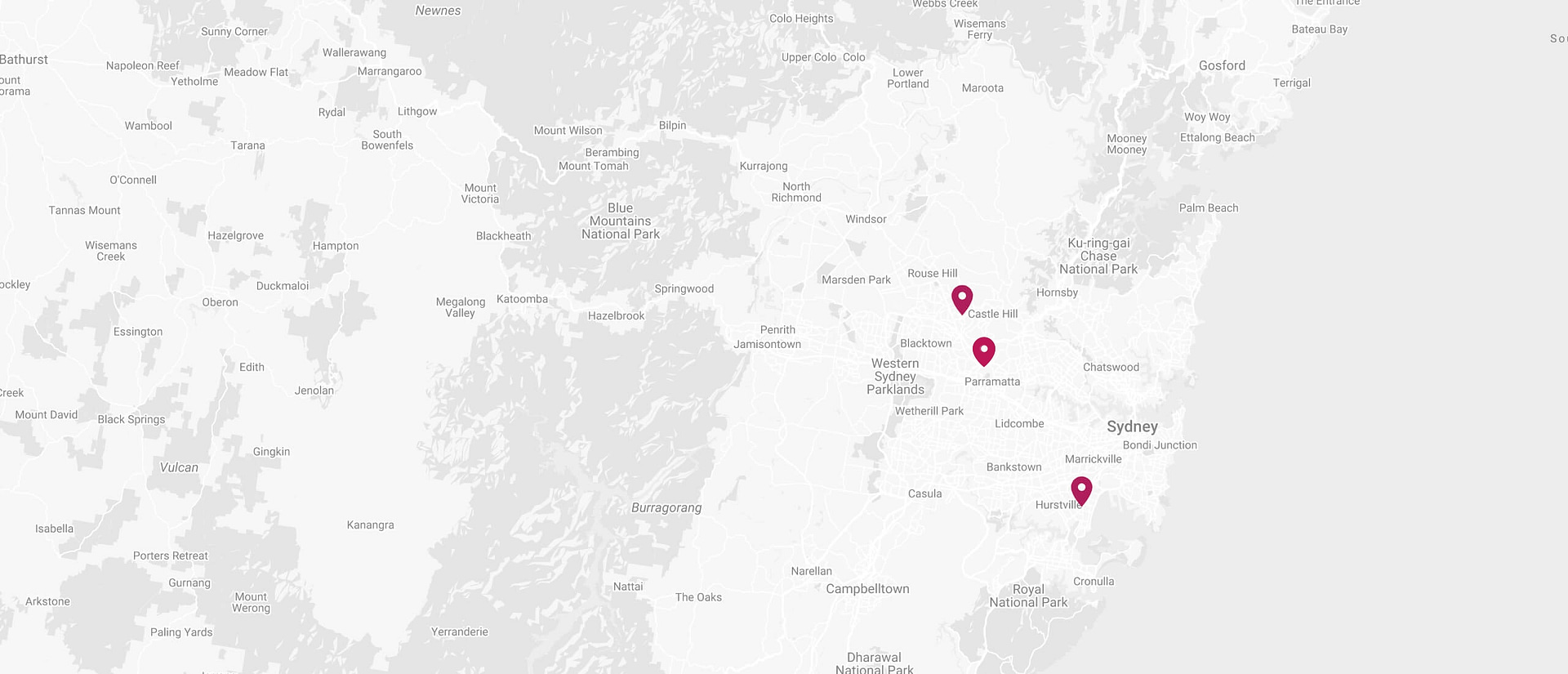Heavy periods and menstrual problems | Sydney gynaecologist
problems
Heavy periods and menstrual disorders | Sydney gynaecologist Dr Anu Mahadik
What are menstrual irregularities?
Your menstrual cycle is counted from the first day of your period to the first day of the next. Many women have menstrual cycles that last between 21 and 35 days. The length of period bleeds also vary from 2 – 7 days. Menstrual cycles become less regular as you near menopause.
You should have regular periods unless you are:
- Pregnant or breastfeeding
- Postmenopausal
- Have a medical condition that causes your periods to stop.
It is thought that up to a quarter of women experience irregular menstrual cycles. This means they may have:
- Heavy periods (menorrhagia) is when you have excessive bleeding during your period.
- Bleeding or spotting between periods (intermenstrual bleeding)
- Infrequent periods (oligomenorrhea) – periods that occur more than 35 days apart.
- Irregular periods when your cycles vary from period to period, typically with a variation of more than 20 days difference.
- Delays the return of menstruation.
Heavy periods | Sydney gynaecologist Dr Anu Mahadik
What are heavy periods?
Heavy periods are periods which have excessive bleeding which interfere with woman’s physical, emotional and social wellbeing.
Bleeding may be considered as being excessive if you are changing pads every hour or passing moderate-sized blood clots.
How do I know if my periods are heavy?
Symptoms of heavy periods are:
- Long periods
- Bleeding through one or more pads or tampons every 1-2 hours
- Signs of anemia (low iron) – dizziness, lightheadedness, weakness, tiredness, chest pain or trouble breathing
- You have menstrual blood costs larger than a 20c piece (smaller clots are normal to pass)
What tests would I need if I have heavy periods?
You will need to see us for a complete assessment including a detailed history examination. You may need some or all of the following tests:
- Blood tests
- Pregnancy test
- Ultrasound of your pelvis
- Cervical screening test
- Iron studies
How is heavy bleeding treated?
What treatment would I be offered?
There are different treatment options that could be recommended. This depends on your age, desire to have children in the future, severity of bleeding, and the cause of heavy periods. The different options of treatment could be:
- Hormonal tablets
- Mirena IUD
- Endometrial ablation (destroying the lining of the uterus)
- Hysterectomy
What are the causes of heavy bleeding?
Some causes of heavy bleeding are:
- Thyroid problems
- Uterine fibroids
- Uterine polyps
- Certain medications
- Bleeding disorders (hemophilia)
- Obesity and excess oestrogen
- Ovulation problems and uterine lining problems that cause hormone imbalances or uterine lining build up
- Pregnancy problems (miscarriage or ectopic pregnancy)
- There may be a link between chronic fatigue syndrome and heavy periods

Menstrual disorders | Sydney gynaecologist Dr Anu Mahadik
What is intermenstrual bleeding?
Unusual or abnormal bleeding is any bleeding that happens when you do not have your period, including:
- Spotting or bleeding at any time during your menstrual cycle other than your period
- Bleeding after sex, more than once
What are the common causes of intermenstrual bleeding?
- Midcycle bleeding can occur at the time of ovulation
- Infections like chlamydia
- Oral contraceptive pills
- Cervical or endometrial polyp
- Cancer of the cervix or lining of the uterus
- Anticoagulant medications
What should I do if I have intermenstrual bleeding?
Your doctor will check for causes of irregular bleeding. Many of these are easy to treat and do not indicate a serious underlying problem. Hormonal birth control may be prescribed.
Any vaginal bleeding after menopause can be a sign of a serious health problem.
What tests will I be offered for IMB?
- Testing for infection
- Pregnancy test
- Ultrasound of the pelvis
- Cervical screening test
Menstrual disorders | Sydney gynaecologist Dr Anu Mahadik
What are infrequent periods?
What causes infrequent periods?
Infrequent periods may be caused by:
- Stress
- Eating disorders, especially anorexia nervosa
- Gaining or losing too much weight
- Hormonal problems such as PCOS
- Pregnancy and breastfeeding
- Serious health problems like tumors in the brain
Your periods should start again once these problems are treated.
Menstrual disorders | Sydney gynaecologist Dr Anu Mahadik
What are irregular periods?
If your cycle is shorter or longer than average you are considered to have irregular periods. That is:
- If your next period is less than 24 days from the start of your last period
- If your next period is more than 38 days from the start of your last period
- Your cycle length varies by more than 20 days from month to month
What causes irregular periods?
Irregular periods are normal for teenage girls and tend to become more regular after a few years. Perimenopausal women (women nearing and entering menopause) have periods that become more irregular over time until they eventually stop.
Irregular periods can be caused by:
- Eating disorders
- Thyroid problems (hyperthyroidism or overactive thyroid)
- High level of prolactin in the blood
- Primary ovarian insufficiency (POI) when the ovaries stop working normally before 40. This is not early menopause as you may still have periods and can get pregnant
- Certain medications (e.g. anxiety or anti-epileptic drugs)
- PCOS
- Pelvic inflammatory disease (PID)
- Stress
- Uncontrolled diabetes (both Type 1 and Type 2)
- Obesity
Menstrual disorders | Sydney gynaecologist Dr Anu Mahadik
Frequently asked questions about menstruation irregularities
Menstrual cycle irregularities have many different causes.
- Pelvic inflammatory disease (PID) can cause irregular menstrual bleeding
- Uterine fibroid can cause heavy or prolonged periods
- Polycystic ovary syndrome (PCOS). Women with PCOS may have irregular periods
- Eating disorders, extreme weight loss or excessive exercising. Anorexia nervosa, extreme weight loss and increased physical activity can disrupt the menstrual cycle and stop menstruation.
- Birth control can also impact your menstruation.
- Pregnancy or breast-feeding. You don’t get your period during pregnancy and breast-feeding typically
Sydney Obstetrician Norwest and St George Private Hospitals
Consulting in Westmead and Kogarah
My consulting rooms are in Westmead. If you are preparing for your antenatal care and looking for the best and most suitable solution, you can count on my practice to help you.
If you live in the Sydney CBD, or south of Sydney, you may be best served by coming to my rooms in Kogarah, at St George Private Hospital Medical Suites.
I am affiliated with Norwest Private Hospital, St George Private Hospital and Westmead Private Hospital.
Westmead Private Hospital welcomes over 2,300 babies into the world each year. They demonstrate a leading and innovative approach to outcome-focused care for women and their families prior to, during and after childbirth.
New parents will enjoy the modern conveniences and perks of a luxury hotel when they experience Westmead Private Hospital’s maternity unit, which has a strong emphasis on assisting new families in the journey of parenthood, with comprehensive postnatal education provided by their maternity team.
They have the unique advantage of being co-located with both Westmead Hospital and Westmead Children’s Hospital. This allows us to provide our patients with the highest standard of private care whilst having access to tertiary level care facilities if required (*access to Neonatal Intensive Care at Westmead Hospital and Westmead Children’s Hospital is dependent on bed availability).
The Maternity Unit comprises:
- 8 birthing suites
- 46 bed antenatal/ post natal unit
- 14 cot Special Care Nursery
- 8 spacious Parenting Suites (additional costs apply)
- Women’s only Infant Feeding Support Centre supported by experienced clinicians
- Education Centre
- Bathing Centre
- Rooftop garden for the whole family to enjoy
- All private rooms with ensuite
Guaranteed Private Room
Westmead Private Hospital is pleased to offer all of our maternity patients the guarantee of a private room following the birth of their baby. One support person is welcome to stay free of charge.
More information on the maternity services at Westmead Private Hospital.
I come from a family of doctors and it has always been my intuitive first choice to become an Obstetrician and Gynaecologist. I basically grew up in it, with my father being one of the co-founders of a series of IVF clinics in India. Care for mothers and the babies they are expecting has always been my first nature and I am grateful for being able to serve my patients in their journey.
So if you are in that phase where you are not sure how to choose a private obstetrician in Sydney, let’s have a chat so we can plan your antenatal care together.
